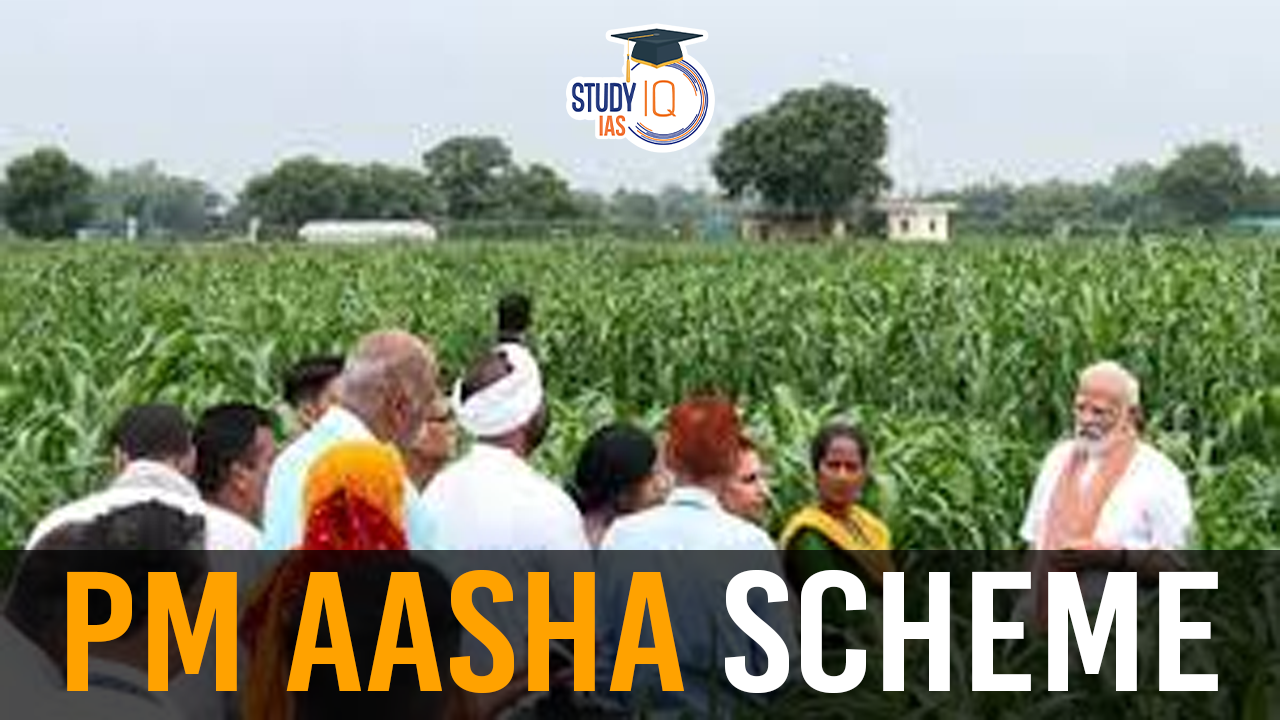Table of Contents
Context: The Union Cabinet has approved the continuation of the PM-ASHA Scheme. It will now have the components of PSS, PSF the Price Deficit Payment Scheme (PDPS) and the Market Intervention Scheme (MIS).
Pradhan Mantri Annadata Aay Sanrakshan Abhiyan (PM-ASHA)
- It is an Umbrella scheme which aims to regulate price fluctuations to ensure fair prices for farmers.
- Nodal Ministry: Ministry of Agriculture & Farmers Welfare
Components of the Scheme
Price Support Scheme (PSS)
- The government will physically procure pulses, oilseeds, and copra through Central Nodal Agencies, with active participation from states.
- In addition to National Agricultural Cooperative Marketing Federation of India (NAFED), Food Corporation of India (FCI) will also take up PSS operations in states /districts.
- Procurement costs and losses will be borne by the central government.
Price Deficiency Payment Scheme (PDPS)
- This scheme covers all oilseeds with a notified Minimum Support Price (MSP).
- Farmers who sell their produce in notified market yards through transparent auctions receive a direct payment for the difference between the MSP and the selling price.
- This payment is deposited directly into the farmer’s registered bank account. The scheme does not involve physical procurement.
Price Stabilisation Fund (PSF)
- It aims to protect consumers and the economy from sudden price changes in essential commodities.
- It builds a buffer stock of key food commodities, such as pulses and onions, and releases them into the market when prices rise.
Market Intervention Scheme (MIS)
- This scheme is to protect farmers from distress sales of their produce.
- It is implemented when prices fall below economic levels or the cost of production, or when there’s a bumper crop during peak arrival periods.
- The central government and the state or union territory government share losses on a 50:50 basis, or 75:25 in the case of North-Eastern states.
- Under this procurement is done by State Procuring Agencies.


 New Phase of Operation Chakra to Combat ...
New Phase of Operation Chakra to Combat ...
 Bhashanet Portal : Empowering Multilingu...
Bhashanet Portal : Empowering Multilingu...
 Grameen Credit Score (GCS), Objectives a...
Grameen Credit Score (GCS), Objectives a...





















